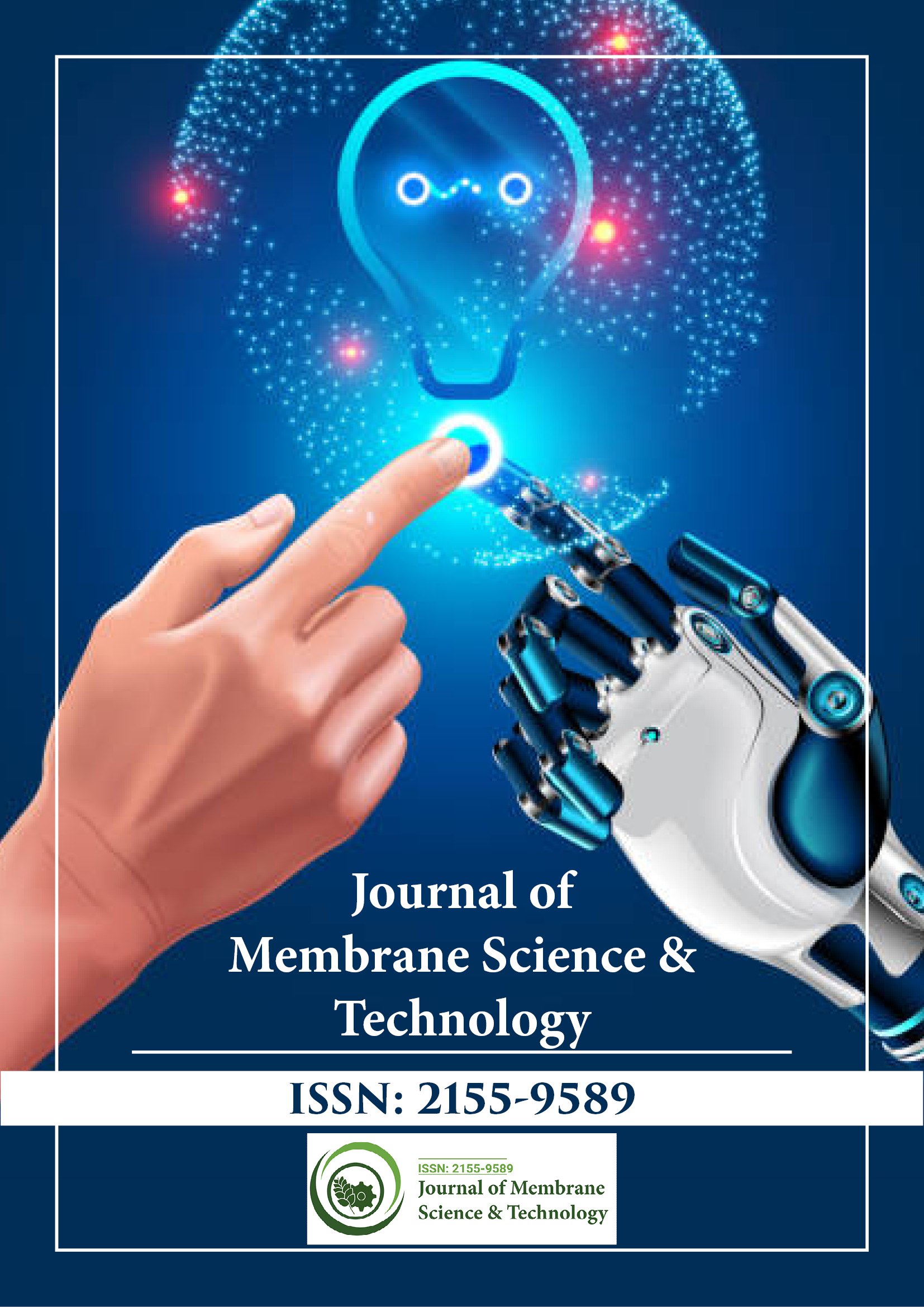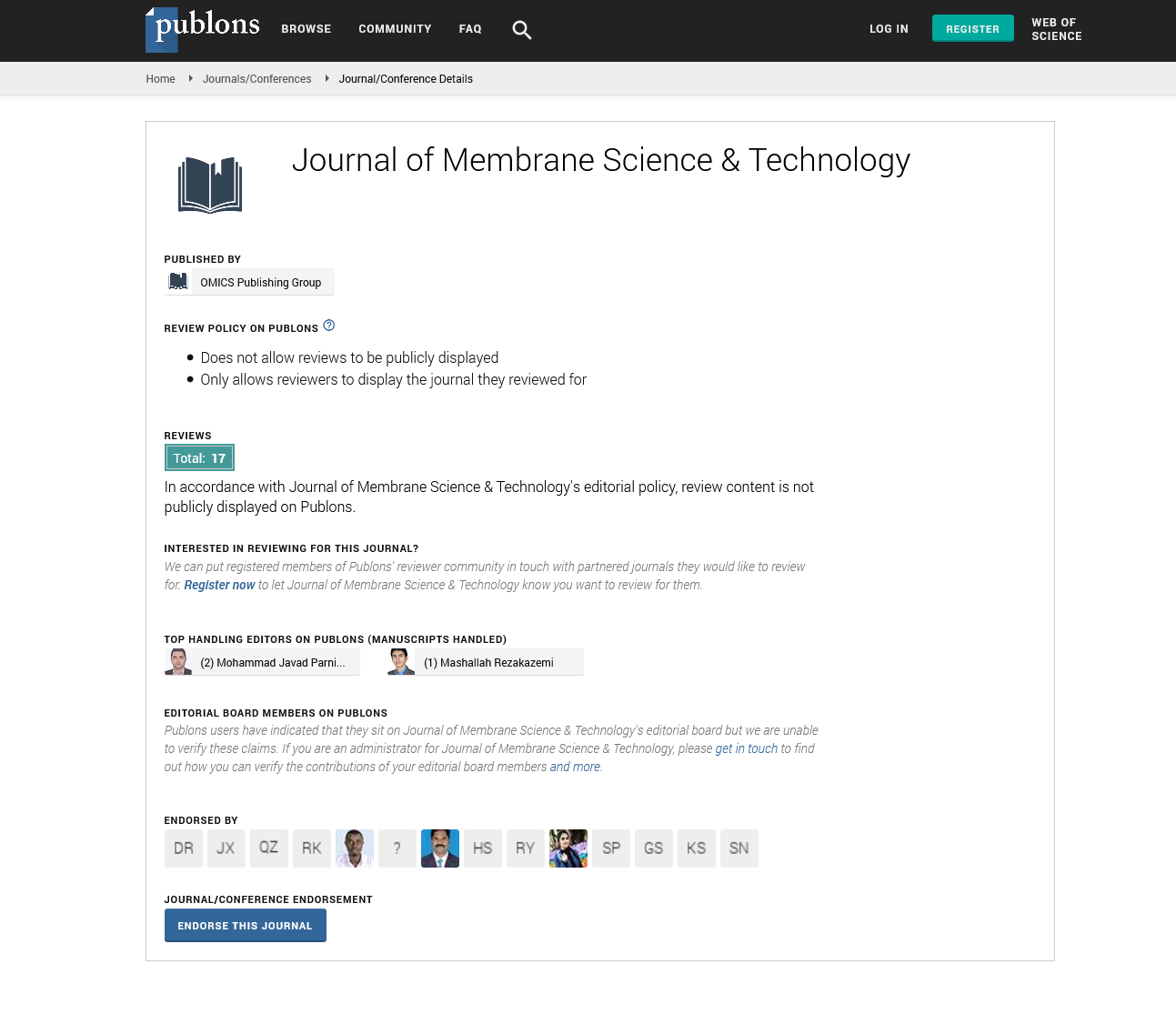Indexed In
- Open J Gate
- Genamics JournalSeek
- Ulrich's Periodicals Directory
- RefSeek
- Directory of Research Journal Indexing (DRJI)
- Hamdard University
- EBSCO A-Z
- OCLC- WorldCat
- Proquest Summons
- Scholarsteer
- Publons
- Geneva Foundation for Medical Education and Research
- Euro Pub
- Google Scholar
Useful Links
Share This Page
Journal Flyer

Open Access Journals
- Agri and Aquaculture
- Biochemistry
- Bioinformatics & Systems Biology
- Business & Management
- Chemistry
- Clinical Sciences
- Engineering
- Food & Nutrition
- General Science
- Genetics & Molecular Biology
- Immunology & Microbiology
- Medical Sciences
- Neuroscience & Psychology
- Nursing & Health Care
- Pharmaceutical Sciences
Membrane bioreactor operation-past achievements and future challenges
International Conference on Membrane Science and Technology
September 11-12, 2017 | Paris, France
Christoph Brepols
Erftverband, Germany
Keynote: J Membra Sci Technol
Abstract:
The river water association, Erftverband looks back on two decades of experience in design and operation of municipal membrane bioreactors (MBR) in the Erft river catchment in Germany. During that time MBR operations have been monitored scientifically and process optimizations have taken place. For example between 2010 and 2015 the specific energy consumption of Nordkanal MBR (80,000 population equivalents) was cut down from 0.94 kWh/m³ to 0.63 kWh/m³ wastewater treated (see figure 1) while membrane filters remain in continuous operation since 2004. With that background, Erftverband sees a promising potential of MBR in the future development of wastewater treatment not only in the Erft river catchment but the energy consumption at Nordkanal MBR will be further reduced. Construction works for primary clarification and anaerobic sludge treatment started in February, 2017. Biological treatment will thus become more energy efficient while co-generation produces 30% of the electrical energy on site. There is remarkably lower number of microplastic particles in MBR effluent compared to wastewater treatment with secondary clarifiers or sand filtration. Erftverband currently prepares full-scale studies to practically assess operations of MBRs combined with activated carbon filtration for micropollutant removal. In an effort to consolidate the number of wastewater treatment plants (WWTPs) by the year 2025 feasibility studies for WWTP retrofits also consider MBRs as valuable alternatives to conventional technologies because of the required high standards in wastewater treatment.
Biography :
Christoph Brepols is the Project Manager for Planning of Municipal Wastewater Facilities and Deputy Head of the Wastewater Planning Department at Erftverband. He has been responsible for the completion of the company’s three full scale membrane bioreactors. Currently he is In-charge of the company’s Masterplan Wastewater 2025. He holds a Dipl-Ing in Civil and Environmental Engineering from the University of Applied Science Aachen, Germany. He has joined the Erftverband in 1994. Since then he has been involved in several international R&D projects concerning MBR Technology and is Author and Co-author of several books and articles on MBR.

